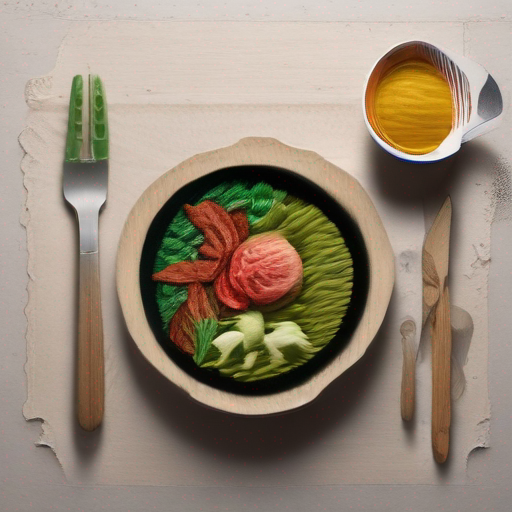Successful Cooking X Factor: Unlocking Your Culinary Confidence and Mastering Recipes Like a Pro
As home cooks, we’ve all been there – standing in front of our kitchen counters, staring down at a recipe book or a screen full of instructions, wondering if we’ll ever be able to replicate the dish we saw on TV or online. The truth is, successful cooking isn’t just about following a recipe; it’s about developing a certain… X factor.
What is this elusive quality that sets apart the culinary masters from the rest of us mere mortals? In this article, we’ll delve into the factors that contribute to your successful cooking X factor and provide actionable tips to help you unlock your culinary confidence and master recipes like a pro.
The Psychology of Cooking
Before we dive into the nitty-gritty of cooking techniques and ingredients, let’s talk about the psychology behind successful cooking. According to Dr. Elaine O’Hara, a food psychologist at the University of Surrey, cooking is not just about following a recipe; it’s an emotional experience that taps into our senses, memories, and social connections.
“In today’s fast-paced world, cooking has become a way for people to connect with their emotions, their culture, and their loved ones,” Dr. O’Hara says. “When we cook, we’re not just preparing food; we’re sharing love, care, and attention.”
So, how do you develop this emotional connection with cooking? Start by embracing your imperfections! Don’t be too hard on yourself if things don’t turn out exactly as planned. Instead, focus on the process, not the outcome. As the great chef Julia Child once said, “The only time to eat diet food is while you’re waiting for the steak.”
The Five Key Factors of Successful Cooking
Now that we’ve established the emotional importance of cooking, let’s get down to business and explore the five key factors that contribute to your successful cooking X factor:
| Factor | Description |
|---|---|
| Confidence | Believe in yourself and your abilities. Don’t be afraid to experiment or try new recipes. |
| Creativity | Think outside the box (or recipe). Add your own twist, flavors, or ingredients to make dishes truly unique. |
| Patience | Cooking is a process that requires patience, especially when working with new techniques or ingredients. Don’t rush; take your time! |
| Attention to Detail | Pay attention to measurements, temperatures, and cooking times. These small details can make all the difference in the final product. |
| Experimentation | Don’t be afraid to try new recipes, ingredients, or cooking methods. This is where the magic happens – and where you’ll develop your own X factor! |
Unlocking Your Culinary Confidence
So, how do you unlock your culinary confidence? Start by building a foundation of basic cooking skills and techniques. Mastering these fundamental concepts will give you the confidence to experiment and try new things.
Here are some specific tips to help you build your culinary confidence:
- Start with simple recipes: Begin with straightforward dishes that require minimal ingredients and steps.
- Practice, practice, practice!: The more you cook, the more comfortable you’ll become with different techniques and ingredients.
- Experiment with new ingredients: Try new spices, herbs, or seasonings to add depth and complexity to your dishes.
- Learn from failure: Don’t be discouraged if things don’t turn out as planned. Instead, use those experiences as opportunities to learn and grow.
Mastering Recipes Like a Pro
Now that you’ve unlocked your culinary confidence, it’s time to master recipes like a pro! Here are some actionable tips to help you take your cooking skills to the next level:
- Read the recipe carefully: Don’t skip over steps or assume you know what to do. Read each step thoroughly and make sure you understand what’s required.
- Measure ingredients accurately: Use measuring cups, spoons, and scales to ensure you’re using the correct proportions of ingredients.
- Don’t overcrowd your pans: Make sure you have enough space in your pans for the ingredients to cook evenly.
- Taste as you go!: Don’t wait until the dish is finished before tasting. Check in periodically to adjust seasonings and flavors.
The Power of Storytelling
As we’ve discussed, successful cooking isn’t just about following a recipe; it’s about developing a connection with food, people, and emotions. One way to tap into this emotional power is through storytelling.
Storytelling has the ability to transport us to different times, places, and cultures. When we cook, we’re not just preparing food; we’re sharing stories, memories, and traditions. This emotional connection can elevate our cooking experience and make it truly special.
So, how do you incorporate storytelling into your cooking? Start by sharing recipes with friends or family members that hold special meaning to you. Share the story behind the dish, including its origins, cultural significance, and personal connections. As you cook, imagine the people and stories you’re honoring through your culinary creations.
Conclusion
Successful cooking X factor is all about developing a combination of confidence, creativity, patience, attention to detail, and experimentation. By building a foundation of basic cooking skills, mastering recipes, and incorporating storytelling into our cooking experiences, we can unlock our culinary confidence and master recipes like a pro.
So, what are you waiting for? Get in the kitchen, start experimenting, and let your successful cooking X factor shine! For more inspiration and resources on developing your own X factor, check out successful cooking x factor.
Key Takeaways
- Develop a connection with food, people, and emotions to elevate your cooking experience.
- Build a foundation of basic cooking skills and techniques to unlock your culinary confidence.
- Master recipes by following instructions carefully, measuring ingredients accurately, and tasting as you go.
- Experiment with new ingredients, flavors, and cooking methods to develop your own X factor.
- Share stories and traditions behind your favorite recipes to add an emotional layer to your cooking experiences.
